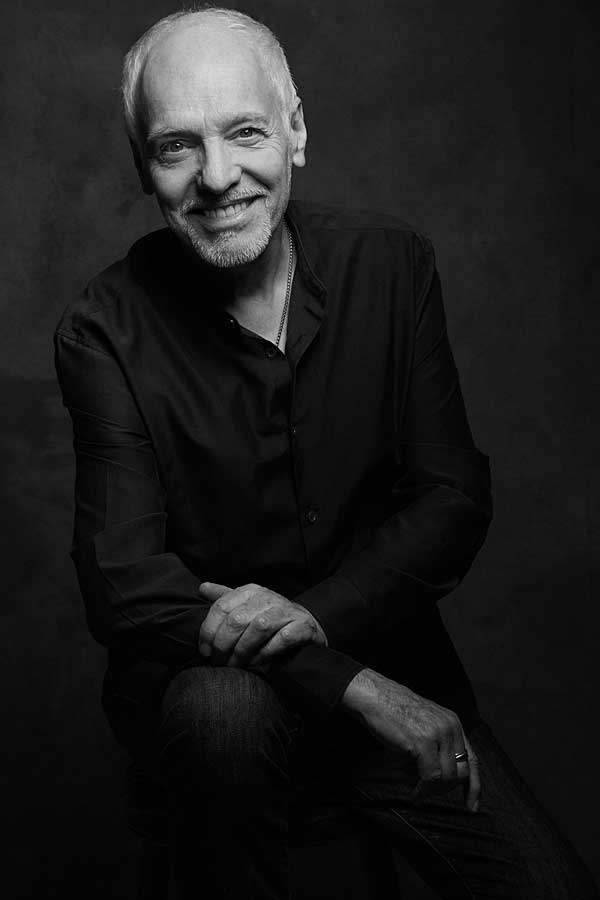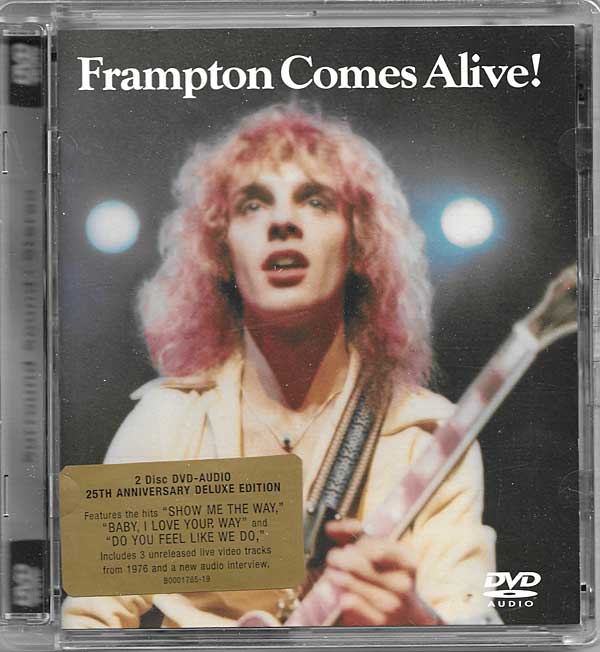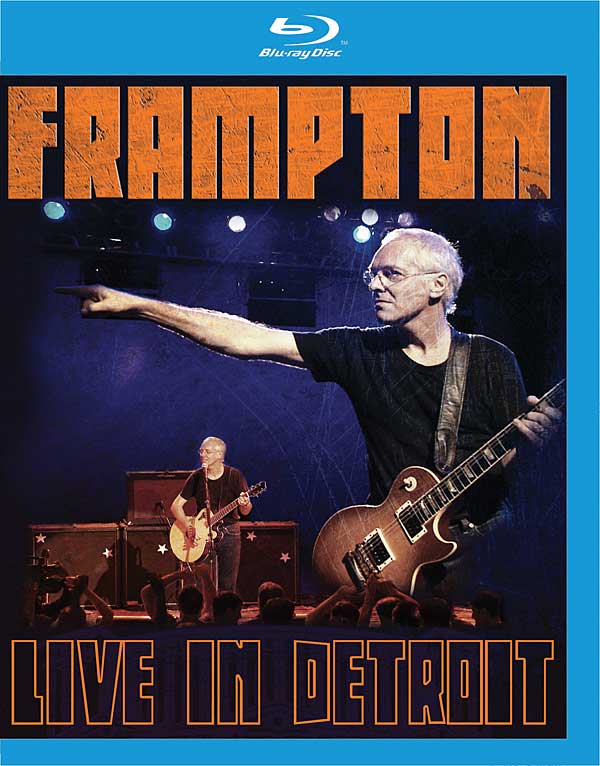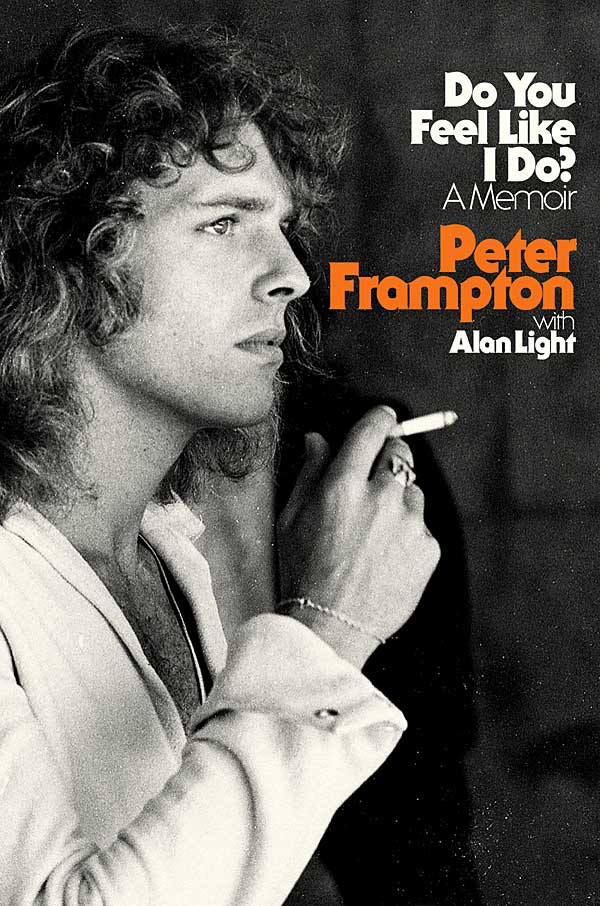I first was exposed to solo(?) Peter Frampton by WJLN (later WRKK) when they played cuts from the "Camel" LP. Though it was a group it was pretty much all Peter. I liked it. Before that I knew him from Humble Pie which I got on board with The Filmore set. I went backward picking up the double LP A&M reissue of Humble Pie's Safe As Yesterday & Town & Country. That doulbe LP grew on me and in a very good way. The fact it was more acoustic took me by surprise after Rockin' The Filmore. Surprise turned into a deeper appreciation of Humble Pie and in particular Peter. Ever since this time before I was old enough to drive I felt a musical connection to Peter and his talents. Throught the years it has grown stronger. I finally saw him live about 15-years ago at Birmingham, Alabama's excellent City Stages Festival (sadly now defunct). It was a very tight slightly over an hour show and it cemented everything. I put Peter up there with the greatest Brit musicians of all time. I want to thank Mike and Peter for this interview. For a long-time fan it was much appreciated. One last thing and that is I'm stoked that Peter is still creating fantastic music that still speaks to me.
Peter Frampton Forgets the Words, But Still Nails All the Riffs Page 2
Frampton: Oh, Chuck is unbelievable. We love Chuck, and he's virtually moved into my studio [i.e., Studio Phenix] now. Having made some comments a few years ago about what would make things sound better in the control room and this and that, he's cost me a lot of money! (chuckles) I tell him that every time we speak: "What are you going to recommend now? I know every time I speak to you, you're going to cost me money!" (chuckles again)
But it's all paid off, you know? No amount of money is too small for a better sound. He is, truly, right up in the top there in my top three engineers, I think, of all time.
Mettler: Oh yeah? Who else would be in the engineering pantheon for you?
Frampton: Well, it would have to be Glyn [Johns].
Mettler: Ah, The Sound Man himself. [Legendary engineer Glyn Johns has worked with the likes of The Beatles, The Rolling Stones, The Who, Led Zeppelin, Eagles, and countless other A-level artists.]
Frampton: Yeah. And Chris Kimsey, who was also Glyn's assistant. He did his first album as an engineer, not as an assistant, on my very first solo record [May 1972's] Wind of Change, so we learned together on that one.
Mettler: Could you quantify, in your mind, the best-sounding song in terms of sound quality that you've recorded? Like, "This is the best sounding thing I've done" — could you quantify that?

Frampton: (exhales) Ohhhh, gosh. I kind of put them away after I've done 'em, so it's hard to recall. (slight pause) That's hard. I mean, as far as in the studio — and this is another cover, but I know the fidelity and the recording and the playing of [the 1968 Beatles, George Harrison-penned classic] "While My Guitar Gently Weeps," on the Now record [released in August 2003], is one of the better-recorded pieces that I've ever done.
Mettler: I was going to say that one, which became a highlight in your live sets, and I also think the version of Soundgarden's "Black Hole Sun" you did on [September 2006's] Fingerprints has to be right up there.
Frampton: Well, thank you. It's like, the original version, you can't touch it — but I kinda made "Black Hole Sun" my own. I even got [Soundgarden and Pearl Jam drummer] Matt Cameron and [Pearl Jam guitarist] Mike McCready, when they came to see us on the Finale Tour in Seattle [on October 9, 2019], to come up and play it with me. It was virtually like the whole session I did with the two of them for the studio recording was recreated onstage, apart from the basic tracks. And Matt just said, "Well, you made this one your own, didn't you?" It was just super to have those guys come out and play it live with me. It was wonderful.
Mettler: It instantly sets a mood. You honor the original version — well, I hate to use the word "version," because that's not the word you like using — so I'll just say you honor the original so well. It's such an emotional song to begin with, and you really capture that feeling.
Frampton: Well, thanks. You know, I chose some really heady material for this album, and I took the chance of a lot of haters going, "Why did you do that? How could you do that? How could you?" I mean, I remember looking at YouTube a couple of days after "Reckoner" came out, and it had around 1,500 likes, and six hates! (laughs) So, I'm doing ok, but I didn't want to read the reviews because I knew it would be, "How the hell can anybody try and do a Radiohead song?"
So, I get it — I get it. Why would I do it? Each time we came to do a tribute to another one of these incredible tracks — it's a big deep breath (laughs), and the challenge is high. The level of quality had to be above where I was yesterday. And that's always been my M.O. — I gotta do something better than I did yesterday, if possible. And having that challenge of something dangerous, I think, is good. (chuckles again)
Mettler: Yeah, I totally agree. Do you have a setup at home right now that you listen to music on regularly? What gear you have?
Frampton: Yes. In my music room, I'm using a Bryston amp with two vintage 10-inch Tannoys, and a Mastering Lab crossover. And then, I also feed the living room from that system to three NHT speakers — two towers, and a subwoofer — so I can hear music from wherever I am.
Mettler: That's good stuff. Well, I know everybody likes to talk about how Frampton Comes Alive! is now 45 years old [it was released January 1976 in the U.S.] — and we'll talk more about that in a minute — but we're also at year 50 of Humble Pie's Performance: Rockin' the Fillmore [released November 1971; Frampton was the lead guitarist in Humble Pie from 1969-71].
Frampton: I know, I know, I know!
Mettler: Those two live albums came out five years apart, and they're considered to be two of the most iconic live albums in the rock canon. Would you agree with that?
Frampton: Well, people tell me that (chuckles), and, yes, I agree that they are great albums — both of them. I think it was the best period of when I was with Humble Pie. The Rock On album [released in March 1971], and then, right after that, as we toured the Rock On album, we recorded Rockin' the Fillmore. I was so pleased to be able to see us do the complete live recordings, which came out as a box set [comprised of four discs and 22 songs via Omnivore in 2013, titled Performance: Rockin' the Fillmore: The Complete Recordings].
And with Comes Alive!, it just amazes me that — and obviously, you know, it's just "an album," but it's one of the biggest albums, if not the biggest album I've ever been on or had in my career. And I thought, "Well, it'll be there for a while, and it'll kind of fade away."
Instead of doing that, it's kind of multiplied over the years, with every new generation picking up a copy, or having their older brother, or their mother — or their grandfather, even! (laughs) — play that record for a 12-year-old, and they're hooked!
I can only just put it down to the vibe of what's on that record is pure enjoyment from us. And there isn't a word for how that comes across when you play it, but it does.
Mettler: Well, it's pure joy, right? It's that unspoken joy you get, the kind of connection between audience and performer, that words don't describe. You get that feel. You know when it's faked, and you know when it's real. And that album is real.
Frampton: Yeah. The majority of the live album came from that one show at Winterland [on June 14, 1975], which was our first headlining show in San Francisco, in a place that big. It was 7,500 [people], I think. It had its own challenge and anxiety, because we didn't have enough material! (chuckles) So we stuck the acoustic set in there and added a few more encores, you know? But I will never forget, when we walked out that night and we got introduced, the place just went bananas, and they continued to do that for the rest of the evening.

Mettler: They sure did. And we again have to give credit to your good right-hand man, Chuck Ainlay, for doing the surround sound mix on the [2004] DVD-Audio and [2003] SACD versions of Frampton Comes Alive! that came out in the early 2000s.
Frampton: Yes! He did a wonderful job. He emulated Chris [Kimsey's original stereo] mix, but in a surround sound format. Plus, he did the remix for the two-track as well, the stereo.
Mettler: That's another surround mix I like sitting in the middle of, since it really makes me feel like I'm in that Winterland audience. I think when people "fake" things like live ambiance for a surround recording, it can be weird. But Chuck's mix makes me feel like, "I'm here." I can actually feel like I'm in Winterland, and the other two venues on there. You must feel that as well. I mean, you had to, because you had to sign off on that, right?

Frampton: Yes. Yeah. My first 5.1 mix, for [May 2000's] Live in Detroit, I think it was one of the first ones Chuck had done too, but he is just — he gets it. Oh my God! There's a lot of great engineers, and he has a lot of idols that he loves and great people he's worked with and respects, but it's just something special about that pair of ears he's got.
Mettler: He's also good at the studio side of mixing surround, considering his work on the 5.1s he's done for Dire Straits [Brothers in Arms, on DVD-Audio and SACD in 2005] and some of Mark Knopfler's solo material [Sailing to Philadelphia on DVD-Audio in 2004, and Shangri-La on DVD-Audio and SACD in 2004]. Maybe Chuck could do a surround mix for any of your studio material in, say, Dolby Atmos — hint, hint?
Frampton: Well, maybe we'll see what the demand is. Chuck and I have talked about Atmos, and we still have some things to figure out. It's a very different process.
Mettler: Well, you did say you liked challenging yourself. I mean, I'd like to hear what Chuck could do with the Words album's "Loving the Alien" being literally in the Atmos heavens, and I'd also like to hear "Shine On" [from Humble Pie's aforementioned Rock On], "I Wanna Go to the Sun" [from March 1974's Something's Happening], or even "Breaking All the Rules" [the title track to Frampton's May 1981 solo album], all in Atmos.
Frampton: (chuckles heartily) Well, good. Ok. I'll have to talk to Chuck about that — but maybe I'll talk with the label [UMe] first. Actually, there's talk from the label of doing various releases of mine that way. But we want the control of it, so I would want Chuck to do it, obviously.

Mettler: So do I! Ok, the last thing I want to ask you about is, at the end of your book [Do You Feel Like I Do? A Memoir, published by Hachette Media in 2020], it's on page 337 where you say that you never plan, and that you always hold out hope for things to happen. Do those two feelings still apply to you today?
Frampton: Oh, yes! And I think the hope also applies to a little deeper meaning — in that my IBM [his aforementioned inclusion body myositis inflammatory muscle disease] takes a lot longer to debilitate me. No, that's not it. What's the word I want? That it takes a lot longer to stop me playing.
- Log in or register to post comments

























































